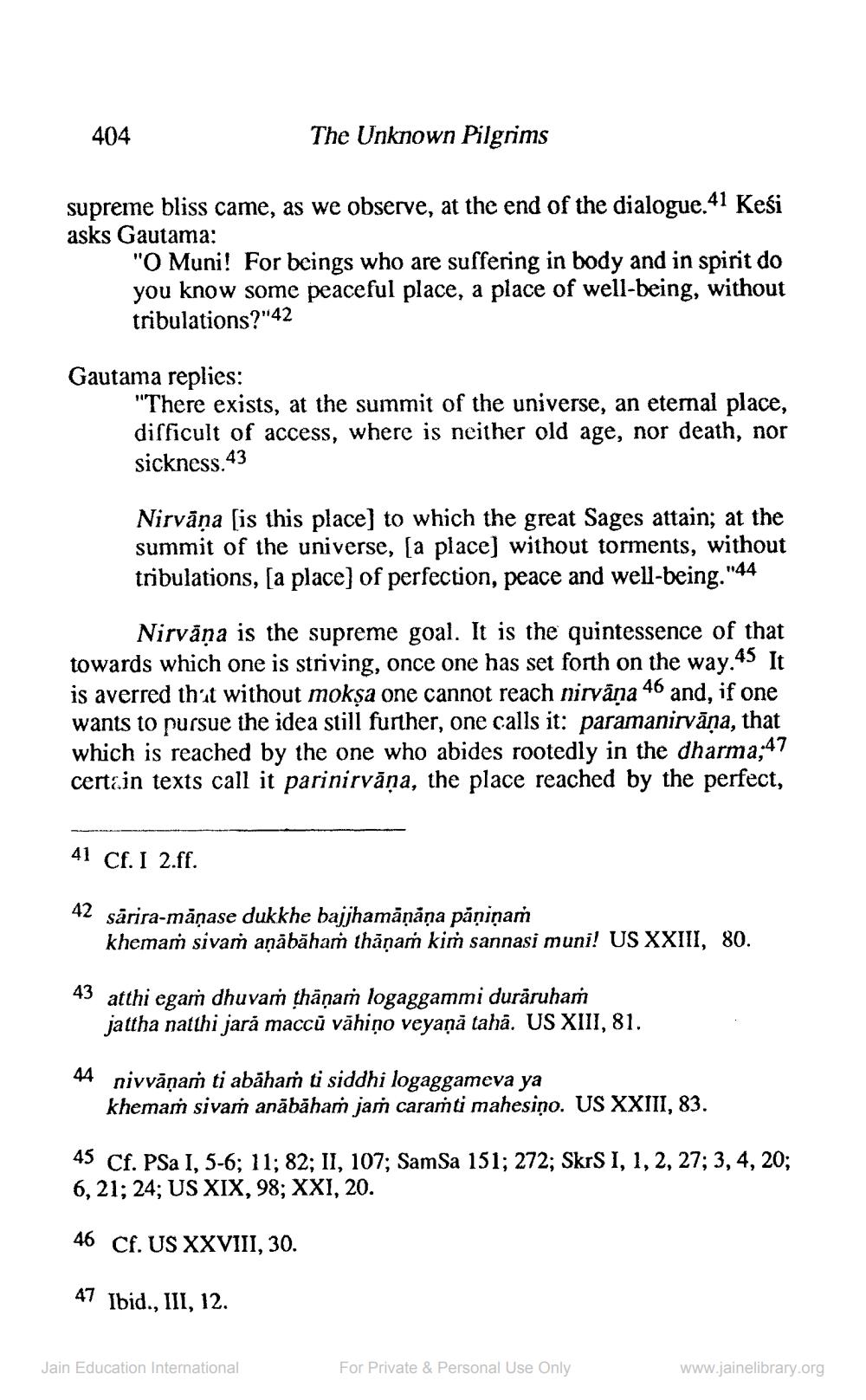________________
The Unknown Pilgrims
supreme bliss came, as we observe, at the end of the dialogue.41 Kesi
asks Gautama:
404
"O Muni! For beings who are suffering in body and in spirit do you know some peaceful place, a place of well-being, without tribulations?"42
Gautama replies:
"There exists, at the summit of the universe, an eternal place, difficult of access, where is neither old age, nor death, nor sickness.43
Nirvana [is this place] to which the great Sages attain; at the summit of the universe, [a place] without torments, without tribulations, [a place] of perfection, peace and well-being."44
Nirvāṇa is the supreme goal. is the quintessence of that towards which one is striving, once one has set forth on the way.45 It is averred that without mokṣa one cannot reach nirvāṇa 46 and, if one wants to pursue the idea still further, one calls it: paramanirvāṇa, that which is reached by the one who abides rootedly in the dharma;47 certain texts call it parinirvāṇa, the place reached by the perfect,
41 Cf. I 2.ff.
42 särira-māṇase dukkhe bajjhamāṇāṇa pāṇiṇaṁ
khemam sivam aṇābāhaṁ thāṇaṁ kiṁ sannasi muni! US XXIII, 80.
43 atthi egam dhuvam thāṇaṁ logaggammi durāruhaṁ jattha natthi jară maccũ vāhiņo veyaṇā taha. US XIII, 81.
44 nivvāṇaṁ ti abāhaṁ ti siddhi logaggameva ya
khemaṁ sivaṁ anābāhaṁ jaṁ caraṁti mahesino. US XXIII, 83.
45 Cf. PSa I, 5-6; 11; 82; II, 107; SamSa 151; 272; SkrS I, 1, 2, 27; 3, 4, 20; 6, 21; 24; US XIX, 98; XXI, 20.
46 Cf. US XXVIII, 30.
47 Ibid., III, 12.
Jain Education International
For Private & Personal Use Only
www.jainelibrary.org




